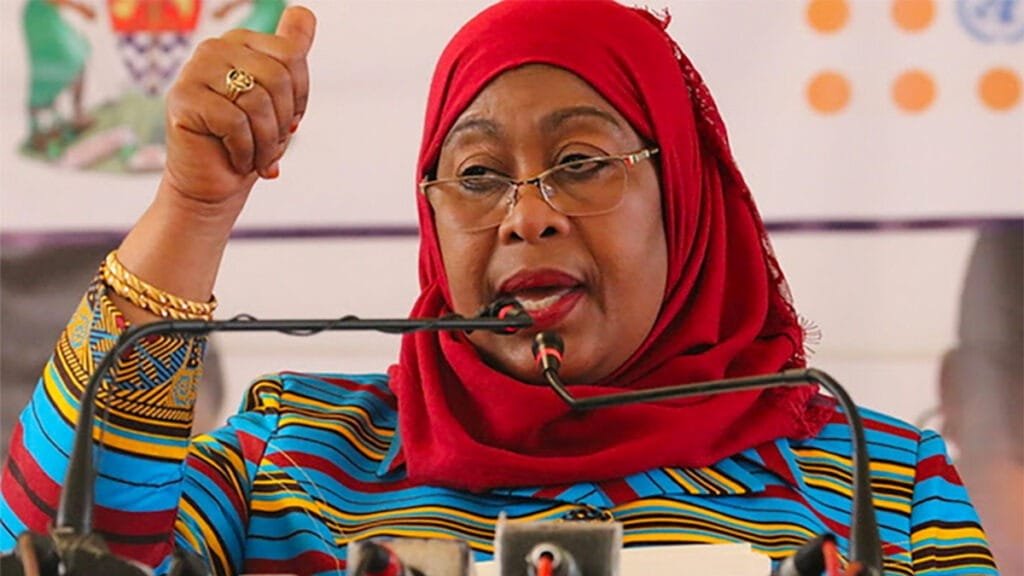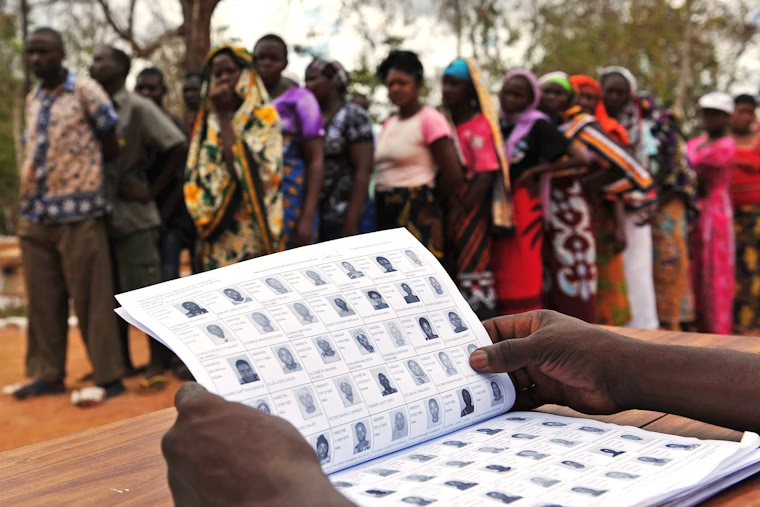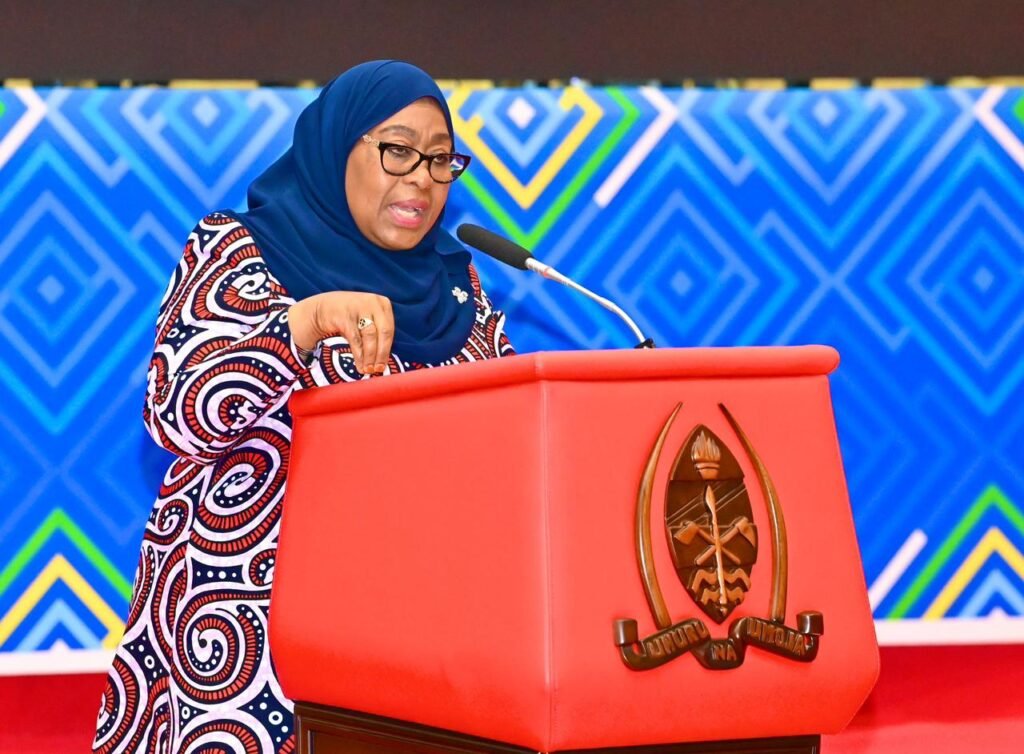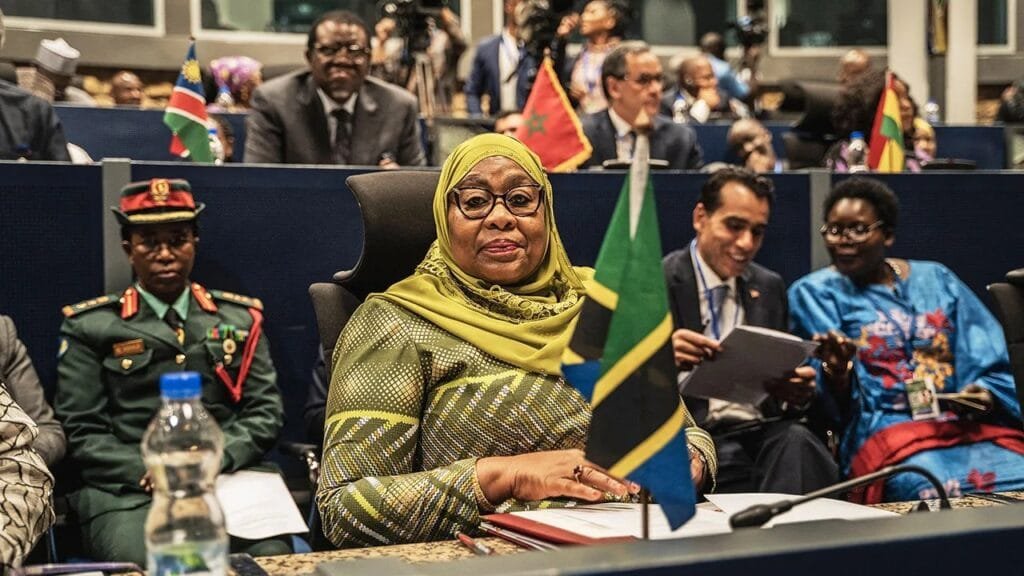In 2021, the ascension of Samia Suluhu Hassan to the Tanzanian presidency marked a historic milestone as she became the country’s first female head of state. Her rise was met with enthusiasm, promising a hopeful turn towards reform and political openness following the iron-fisted rule of her predecessor, John Magufuli.
However, as Tanzania approaches the local elections in 2024 and gears up for the 2025 general elections, this optimism appears overshadowed by familiar patterns of repression. Recent waves of abductions, arrests, and killings of opposition figures paint a disturbing picture of the political landscape, raising concerns that Tanzania may be returning to the autocratic practices that characterized the Magufuli era.
When President Hassan took office in 2021, she appeared to usher in a new era of political openness and democratic promise. Almost immediately, she lifted bans on opposition rallies, which had been a staple of Magufuli’s administration, allowing opposition parties to organize and criticize the government openly. This development was hailed as a progressive move, encouraging political expression and civic participation in a country that had become increasingly stifling for dissenting voices. At the time, observers and activists believed that Tanzania was on the brink of substantial political reform.
President Hassan’s initial actions seemed to reflect a departure from the repression and authoritarianism that had defined her predecessor’s regime. Tanzanians could express dissent more freely, and opposition parties such as Chadema saw an opportunity to galvanize support and build their influence.
International observers, including human rights organizations and Western governments, praised these changes, expressing optimism for the potential of democracy in Tanzania. This goodwill, however, has since waned as the political environment has regressed, with opposition leaders and activists voicing their frustration with the state of Tanzanian democracy under Hassan.
Re-emergence of Repression and Political Violence
Despite early signs of political reform, recent events suggest that Tanzania is slipping back into the authoritarian tendencies of the Magufuli era. In 2023 and 2024, several high-profile incidents pinpointed a resurgence of state-sponsored violence and political oppression. Notable among these was the brutal killing of Ali Kibao, a senior official of the Chadema party, whose body was found beaten and doused with acid. His murder, coupled with a spate of disappearances and detentions of opposition figures, has cast a shadow over President Hassan’s commitment to reform.
Chadema’s deputy leader, Tundu Lissu, who narrowly survived an assassination attempt in 2017, returned to Tanzania with hopes of reinvigorating political opposition. But recent detentions and the killing of Kibao have left Lissu and others disillusioned, viewing the promised reforms as superficial and inadequate. Lissu was quoted as saying that there had been “no reforms whatsoever” of any democratic significance. His sentiments echo those of numerous political leaders and activists who now see the current administration’s approach as indistinguishable from that of Magufuli’s.
This atmosphere of fear and violence has not only stymied political engagement but also tainted Tanzania’s international reputation. Rights groups and foreign diplomats have called for investigations into the alleged state-sanctioned violence, underscoring the need for accountability in a country that once held promise for democratic governance.
One of the most disheartening trends under President Hassan’s administration has been the crackdown on public gatherings and opposition rallies. In August 2024, a major incident involving the detention of hundreds of Chadema supporters and leaders ahead of a rally underscored the extent of state control over political expression. The rally, organized to commemorate International Youth Day, was meant to highlight issues affecting Tanzania’s youth, but was thwarted by police detentions and alleged threats from security forces.
This crackdown is reminiscent of the approach taken under Magufuli, where opposition rallies were outright banned, and political dissent was viewed as a threat to state security. Such repression directly contradicts Hassan’s earlier promises and demonstrates the difficulty opposition parties face in mobilizing their supporters and spreading their messages. By restricting freedom of assembly, the Tanzanian government effectively limits citizens’ access to diverse perspectives, reinforcing a climate of fear and discouraging civic engagement.

Targeting Journalists and News Outlets
The renewed censorship of Tanzanian media outlets has also drawn sharp criticism, reflecting a further deterioration in the country’s democratic fabric. In 2024, the Tanzania Communications Regulatory Authority (TCRA) suspended the license of Mwananchi Communications Ltd after it published a satirical animation depicting President Hassan in a fictional scenario addressing reports of opposition kidnappings and killings. The TCRA alleged that the content threatened national unity, justifying the suspension as necessary to preserve social harmony.
This incident is not an isolated case. Several media houses have faced intimidation and censorship, with journalists reporting increased surveillance and restrictions. The return of these tactics is particularly concerning as it reinforces self-censorship within the media, making it challenging for Tanzanians to access unbiased information. Media outlets in Tanzania now face an environment where even slight criticism of the government can lead to sanctions, fostering an atmosphere where critical journalism is stifled, and propaganda thrives.
The use of the TCRA as a tool for suppressing dissent aligns with the government’s desire to control the narrative and silence critics. Such actions have sparked condemnation from international rights groups, which argue that media freedom is an essential pillar of any democratic society. By limiting the media’s ability to report freely, the Tanzanian government restricts public access to information, ultimately undermining transparency and accountability.

Tanzania’s Diplomatic Relations and International Backlash
The shift towards repression has not gone unnoticed by the international community. Tanzania has long relied on foreign aid and investment from Western countries, many of whom have expressed concerns over the recent authoritarian tendencies. Western governments and human rights organizations have called on Tanzania to uphold its commitments to democratic values, with some countries considering a review of their financial support in light of the recent abuses.
Human Rights Watch, Amnesty International, and several other organizations have issued statements condemning the government’s actions, urging President Hassan to investigate the killings, disappearances, and arrests of opposition figures. However, the Tanzanian government has largely dismissed these calls, citing concerns over foreign interference in its domestic affairs. President Hassan has remained resistant to external pressure, cautioning against what she perceives as Western meddling.
This defiant stance risks damaging Tanzania’s reputation on the international stage, potentially impacting foreign relations and economic support. For Tanzania, a country heavily dependent on aid for its development, continued repression could have significant economic repercussions, affecting the country’s ability to attract investors and achieve sustainable growth.
Meanwhile, the resurgence of state repression has had a profound impact on Tanzanian civil society, which has long been a vital force for democratic reform and human rights. Human rights organizations, NGOs, and activists face increased challenges as the government intensifies its efforts to monitor and restrict their activities. Civil society groups, which had previously been vocal advocates for freedom and accountability, now operate in a climate of fear, with many members facing harassment, arrests, and threats.
The 2024 Local and 2025 General Elections
The current and next years will be crucial for Tanzania, with both local elections in 2024 and the general elections in 2025 respectively, posing a significant test for President Hassan’s administration. These elections were initially expected to provide an opportunity for Hassan to demonstrate her commitment to democratic reform, with the potential to rebuild public trust and restore Tanzania’s image. However, the recent crackdown on political opposition and media freedom casts doubts on the likelihood of a free and fair electoral process.
The Tanzanian government’s recent actions suggest that it may be more focused on retaining power than on promoting a genuine democratic process. Opposition leaders have expressed concerns that the upcoming elections could see a repeat of the violence and irregularities that characterized previous electoral cycles. If these elections are indeed marred by violence and manipulation, it could further erode public confidence in Tanzania’s political system, fueling disillusionment and fostering unrest.
For President Hassan, the upcoming elections represent an opportunity to either uphold her early promises or cement her administration’s reputation for repression. The path she chooses will have a lasting impact on Tanzania’s future, potentially shaping the country’s democratic trajectory for years to come.
President Hassan’s Legacy
The contrasting phases of President Hassan’s tenure present a challenging question about her legacy. Initially seen as a reformer, her administration’s return to authoritarian tactics has left many Tanzanians questioning whether she intends to fulfill her promises or if her earlier gestures were merely superficial. By adopting the repressive tactics of her predecessor, Hassan risks becoming synonymous with authoritarianism, negating the goodwill she garnered at the beginning of her presidency.
While her administration’s early efforts were commendable, the recent surge in state-sponsored violence and censorship suggests that Hassan’s leadership may not signify the new dawn that many had hoped for. Instead, her tenure may ultimately be remembered as a continuation of the very practices she initially sought to dismantle.
As Tanzania faces the prospect of a prolonged period of political repression, the country’s future hinges on the actions of its leadership and the resilience of its civil society. The next few years will be crucial in determining whether Tanzania can break free from its authoritarian past and embrace a more democratic future.
The international community, civil society, and Tanzanian citizens must continue to advocate for democratic reforms, applying pressure on the government to fulfill its commitments to human rights and political freedom. For Tanzania, the path forward requires courage, transparency, and an unwavering commitment to democratic principles. Only through such efforts can the country hope to escape the cycle of oppression and create a brighter future for its people.
As Tanzania stands at this crossroads, the coming years will reveal whether President Hassan’s administration will usher in a genuine era of reform or continue down the path of repression.








